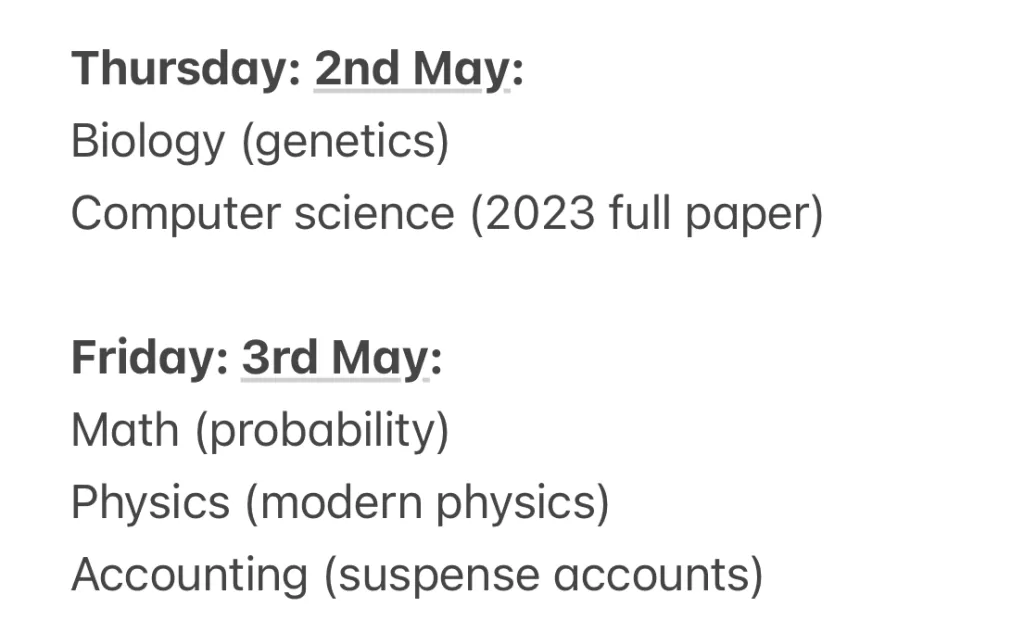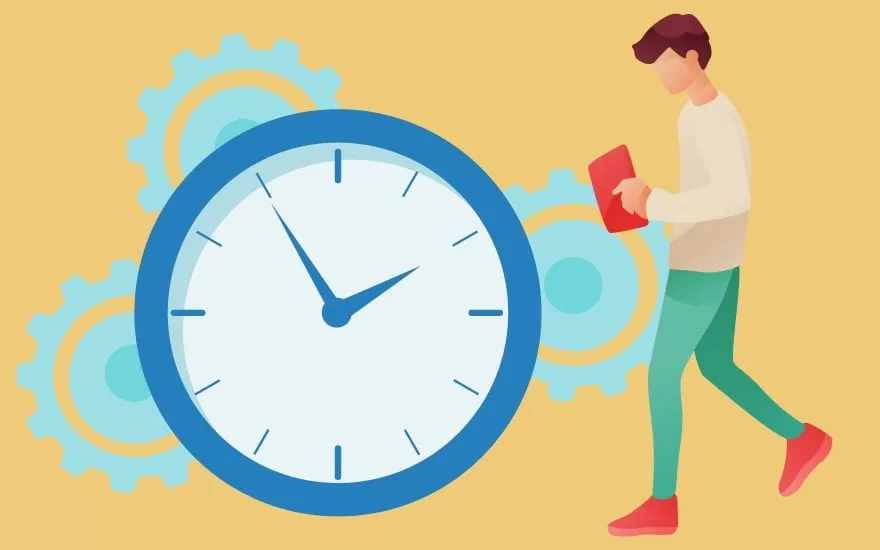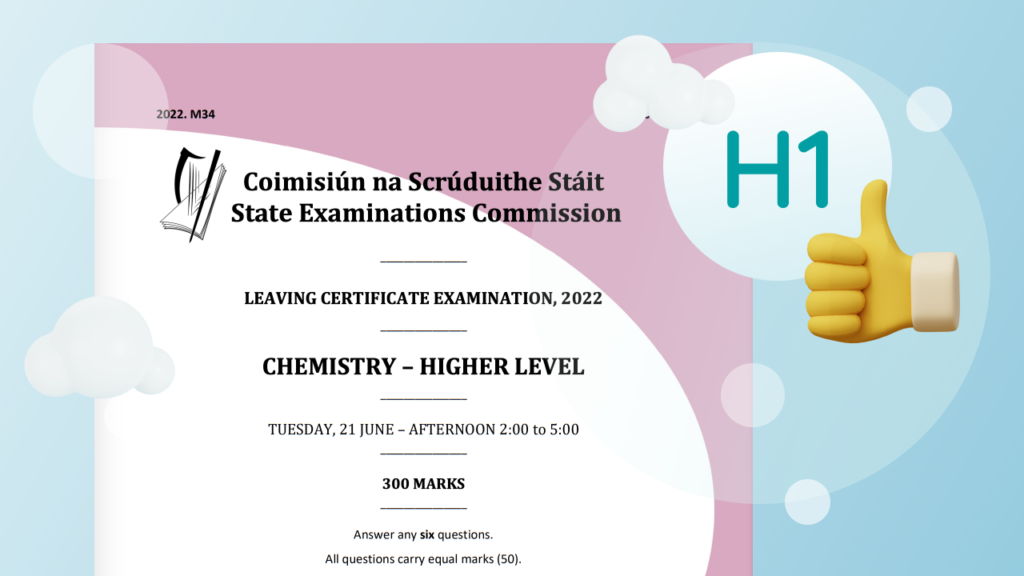The leaving Certificate is difficult. It will definitely be one of the toughest things you will ever do. And getting 625 points is a feat not many achieve. It’s just really difficult. But not impossible.
In this article, I will share how I got 625 points in my Leaving Cert, and give you the tricks of the trade on how to get here yourself. With hard work, commitment, and a touch of self-confidence, it’s much easier than you think.

Did you know that in 2023 only 1.9% of students got 625, and a mere 3.2% scored between 600-624 points (2024 statistics are not available yet). Quite a small number, isn’t it?
The question everyone has (who wants to do good anyways) is how to do this? How to be in the league? What do these rare students do? Life would be much easier if someone answered these questions, so here I am.
In this article, I will aim to share what these students do differently, and hopefully make you believe that getting 600+, even 625, is extremely doable and you can get there too.
Setting the expectations
Before I dive into the tips and tricks, it’s important to set the expectations. The new academic year has just started, so this is your fresh start.
If you’re in 4th/5th year, this is your opportunity to decide how you’d like the next three/two years to go. If you’re in 6th year, it’s not too late to realign your focus, and it’s certainly not too late to start giving it your 200%.
Let’s start with the basics.
The points you require for your dream course are irrelevant. Whether it be 530 points, or maybe even 613, that’s absolutely irrelevant. The points fluctuate every year. A course that might have required 550 in 2024 can require 600 in 2025, and 625 in 2026, you just never know.
That’s why spending the year fixating on a predefined number won’t get you anywhere. If you’re goal is to get an H2 in maths, why not an H1? Don’t restrict yourself.
At this point, you’re aim should be to do the very best in each and every subject. Don’t settle for anything less. Understand each and every concept, the H1 WILL follow suite.
Take a moment to fully grasp this, because this is perhaps the most important step.
How to maximise your study?
Now that you have your personal expectations set (or removed completely as I recommend), let’s move on to the finer details.
This shouldn’t come as a surprise, but getting the top grade requires an immense amount of hard work. That sounds rough, but it really isn’t if you put a plan in place.
Clearly laying out what you intend to study each day is pivotal. It helps keep you focused, and makes sure you get everything done (even the topics you don’t like).
This doesn’t need to be anything complicated. I personally found it too tedious (and boring) to make a week schedule every Sunday, so here’s what I did:

Every day on my bus journey home, I would quickly jot down the subjects I was hoping to study that evening, and the topics I would cover.
This keeps you focused, and forces you to sit down and study.
Tip: Keep the list reasonable. DO NOT list out 7 subjects and 5 topics in each. You are NOT getting that done. Take inspiration from the little plan I made for 2nd and 3rd May!
Helpful articles (for in-depth reading on the above):
How long to study?
It’s often a misconception that better grades are directly correlated with the number of hours you study. While there’s a certain level of truth in that, there’s a warning too.
Obviously, you need to get a certain number of hours in every day to maximise your grades. But over-studying (yeah that’s a problem too) is actually worse than studying less.
I knew people who would study 9 hours every day. Mind you, this is on-top of regular school hours. How did they manage that? I frankly have no clue. This worked for some, but mostly, it became counter-productive.

They wouldn’t get good grades, when mathematically speaking, they should be getting straight 100s.
This tiresome approach leads to quick burnout. You stop paying attention in class, and are just tired all the time.
What’s the sweet spot?
I can’t tell you what will work for you, but this is what worked for me:
5th year: 3 hours on weekdays (with a complete break on Friday) and 3-4 hours on weekends
6th year: 3-4 hours on weekdays and 5-6 hours on weekends
(Just to clarify, these figures are per day. For example I would study 6 hours on Saturday, then 5 hours on Sunday. Don’t want anyone getting the wrong impression!)
I honestly cannot recall studying longer than 3 hours on a weekday in 5th year, and even most of 6th year. Closer to my mocks, and then during the run-up to the LC, I might stretch till 7 hours on the weekends.

What about the busy days?
Some days will be quite busy for you. You may have extra classes in the evening, or just a longer timetable. On such days, you may want to study less, which is absolutely understandable.
My Mondays had quite a tight schedule. So, I’d take it easy. But I would compensate for that on Fridays (in 6th year), when I would end school at 12:30. You can always alter this, but at the end of the day, if you start falling behind, then something’s wrong.
How long should I spend on each subject?
1.5 hours.
Don’t try studying all your subjects every day. Doesn’t work. Go in depth.
On weekdays, I would study 2 subjects. And on weekends (in 6th year), I would only study 3 to 4 subjects, but spend a good amount of time on each.
When to crank it up a notch?
The timings mentioned above worked for me on ‘normal days’. But I would obviously change them around the exam period. Slightly change them.
Closer to exams, I will spend a little extra time on the weekends. Maybe an extra hour and a half. However, my weekdays would be quite similar throughout the year.
I physically couldn’t study longer on school days. There are only so many hours. And that’s perfectly acceptable.
Getting the most of exams
In the school I went to, we had exams essentially every day. Throughout the two years, I can’t even remember the number of exams I did. Too many to count. But those were extremely useful.
Let’s face it, not many of us like exams. But whether you like it or not, you will be sitting a big one in June, so might as well get ready for it.

Using these exams adeptly is crucial. They provide you with a brilliant opportunity to work on your timing, and help you understand what works in an exam, and what doesn’t. The added benefit is that you get to know if you understand the chapter(s).
But here’s the most important thing to remember, your grades in these tests are irrelevant. I knew many people who would always talk about getting 625 or 590 points in their Christmas exam. While that can be a good confidence booster, those points don’t actually exist.
Whether you perform exceptionally, or make an absolute blunder, it’s irrelevant. Like I said at the beginning, your goal shouldn’t be to get a certain percentage in the exams. In the run-up to the LC, your goal should be to make sure you understand every concept.
Summary: Don’t get bogged down, or overly-excited, by your class tests’ results. They’re only relevant in order to helping you prepare for the real thing.
Should I leave anything out?
When you get closer to the exams, you will be faced with this question: should I leave any chapters out? Can I afford to leave any chapters out?
If you are to take only one thing from this article, take this: DO NOT leave anything. Granted that you have choices in the exams, but it’s a good idea to ACTUALLY have those choices.

Covering everything might be difficult, but it’s one of the most important steps towards getting 625.
Block out the external noise
My last tip (of this article anyways) is to learn to block out the external noise.
Throughout your LC cycle, you will meet different people employing different strategies. It’s human nature to get swayed towards the paths other people are taking, especially if it’s our friends.
In my case, some of my friends were studying 9 hours a day. Some were leaving stuff out. Others just stopped coming to school nearer to the exams (I do not recommend that, but more in a follow-up article).
Of course, at the time I was slightly influenced by them. Luckily, I didn’t follow their foot-steps. And that’s my advice to you as well.
Take inspirations from others around you, but at the same time, trust that you know what you’re doing.
Final thoughts
The Leaving Certificate is difficult. And getting 625 (or 600+) is even more difficult. But it’s not impossible. The above are just some of the things that helped me get there, and hopefully you will find them helpful too.
I will give more tips and tricks surrounding the Leaving Cert in follow-up articles too. Keep an eye out for them.
Good Luck!
Post Disclaimer
The information contained in this post is for general information purposes only. The information is provided by How to get 625 points in the Leaving Certificate? and while we endeavour to keep the information up to date and correct, we make no representations or warranties of any kind, express or implied, about the completeness, accuracy, reliability, suitability or availability with respect to the website or the information, products, services, or related graphics contained on the post for any purpose.



